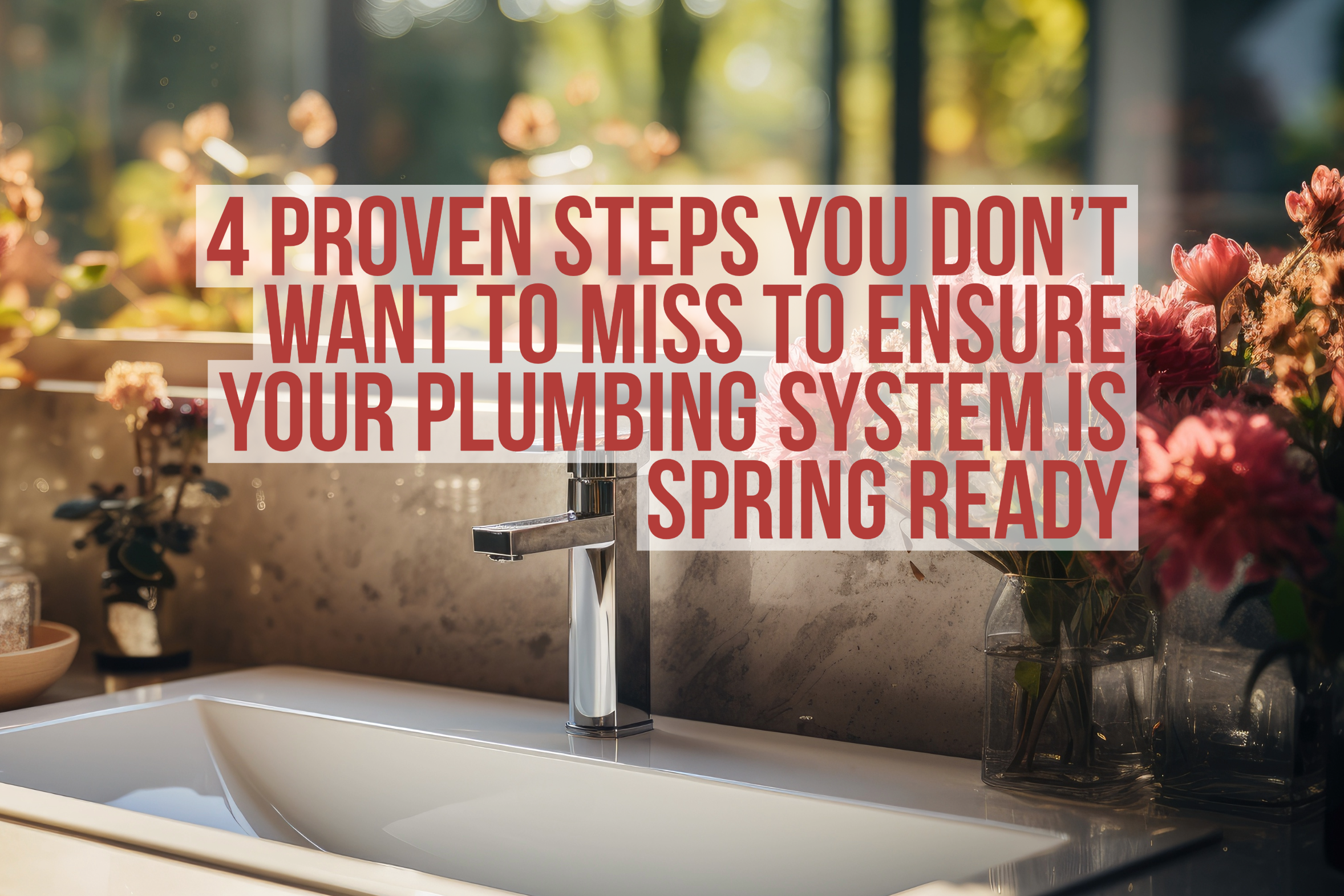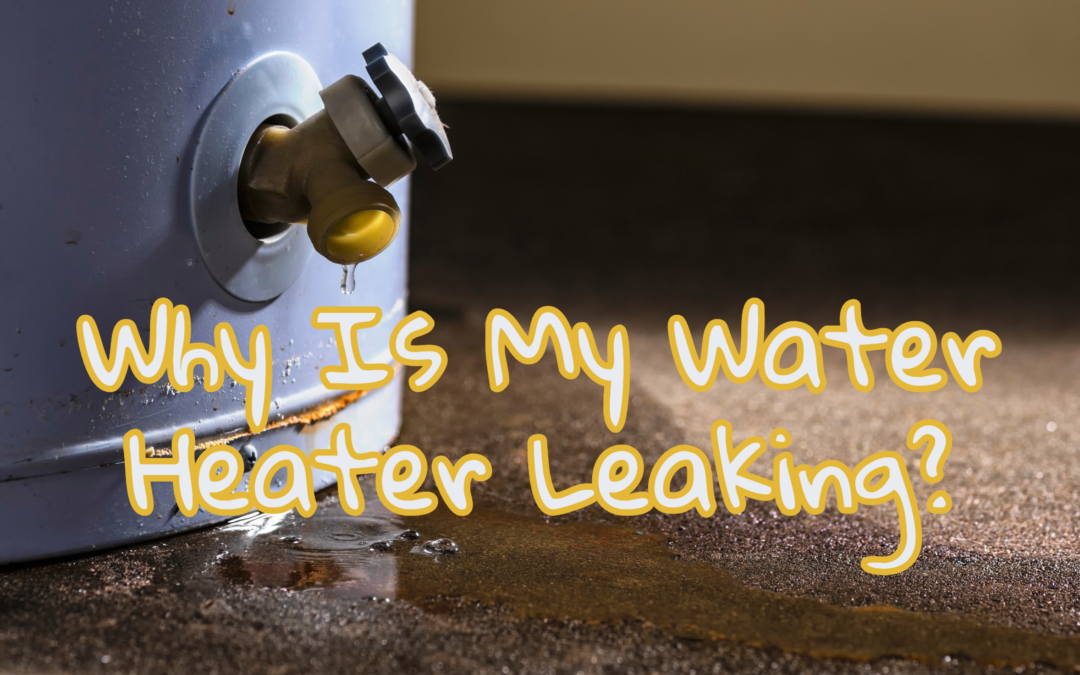With the arrival of spring, our attention naturally shifts to the vibrant renewal of the season. For homeowners everywhere, spring presents an ideal opportunity for cleaning – whether that means deep cleaning or tackling a long-awaited organizational project. We just want to remind you not to overlook your plumbing system during this time! After enduring the winter months, your plumbing system could benefit from seasonal maintenance to ensure optimal functionality for the upcoming rainy season.
It’s important to note that neglecting specific components might result in expensive repairs down the road. So, today, Five Star Dayton Plumbing aims to equip you with our practical spring preparation tips to help safeguard your home and plumbing system. Prepare for the spring season with confidence and peace of mind!
1. Check on Your Water Heater
Your water heater stands as a reliable ally, ensuring heated water for your comfort at your convenience. As the warmer spring weather approaches, it may be easy to overlook your water heater. Yet now is an ideal moment to conduct a thorough inspection to address any maintenance requirements promptly.
- Check the Temperature: To ensure optimal performance, verify that the water heater is set to the recommended temperature (120 degrees Fahrenheit or slightly lower per the CPSC).
- Inspect the Heater: You should inspect your water heater for signs of corrosion, focusing on the valves and connections. If any rust or unusual signs are detected, we recommend seeking professional assistance to evaluate the situation. While it could be minor, timely detection and resolution are key to preventing potential issues from escalating into larger, costlier problems.
- Listen to the Heater: Irregular noises serve as an early warning sign that your system might be strained. If you detect any unfamiliar sounds, it’s advisable to contact a professional. Noises like sizzling, hissing, or crackling could indicate that your water heater needs draining.
- Look for Dust: You may find the space around the water heater is covered with dust and dirt. If you find this to be true with your water heater, take a moment to gently sweep around It. You may use a vacuum with a nozzle attachment if necessary. Just don’t forget to practice caution and move carefully. If the unit has dust on top of it, carefully wipe down the water heater with a damp cloth. Take extra care to wipe it dry afterward.
The water heater typically lasts 8-12 years with proper maintenance. If yours is nearing this range, it might be time to think about getting a new one.
Just for Fun: Did you know the first day of spring this year in 2024 is March 19?
2. Check on Your Sump Pump
For residences equipped with a sump pump, it’s crucial to note that early spring marks the onset of high-water tables. With the rainy season in full swing, confirming your sump pump is well-maintained and prepared to manage the workload can mitigate potential disasters such as basement flooding. Protecting your personal belongings and the structural soundness of your home is a proactive measure that you’ll never regret taking!
- A Power Check: To ensure your sump pump is operational and prepared, first conduct a test by pouring water into the sump pit. If it does not kick on as it should, you can try troubleshooting it yourself if you feel comfortable doing so. Click here some information on how to troubleshoot your sump pump or feel free to give us a call so we can come diagnose your issue for you!
- The Pit Check: To maintain optimal sump pump performance, it is essential to clear any debris or sediment that may have accumulated within the pit. Ensure there are no loose particles that could impede the pump’s function and decrease its efficiency. If any debris is present, gently remove it. On top of that, you’ll want to confirm that the sump pump lid is securely in place over the pit to prevent any loose debris from entering. Keep the area surrounding the sump pump clean and clutter-free to avoid potential plumbing issues. This maintenance routine will help prevent any plumbing mishaps from arising.

3. Check on Your Indoor Drains
During the rainy spring season, your home’s drains can face a real challenge. Debris can build up, obstructing proper drainage and causing standing water or potential overflow. As a result, keeping your drains clean, clear, and ready is key to staying prepared for spring.
- Kitchen Sink Drain: If your kitchen sink has a garbage disposal, activate it to confirm its functioning and verify that the water drains smoothly. This kitchen component sees daily use, so it’s an essential form of preventative maintenance. Natural products like baking soda and vinegar can be used to clean the kitchen sink drain. For a pleasant aroma, consider using lemon juice. Just make sure to avoid harsh chemical drain cleaners, as they can harm your drain and pipes.
- Bathroom Drains: To maintain optimal drainage in your home, ensure your bathroom drains are free of any buildup or blockages. Remove drain stoppers and screens from sinks, tubs, and showers. Clear out any hair or gunk accumulation. Test the drains by running water to ensure smooth flow. Check toilets for proper flushing and drainage and address any issues promptly to avoid backups.
- Floor Drains: To ensure your floor drains are in top condition, remember to sweep around them to clear stray hair, dust, and loose particles. You can maintain them by pouring hot water down the drains. For a deeper clean, use a mixture of vinegar and baking soda, then rinse thoroughly with water.
4. Check on Your Gutters, Downspouts, & Outdoor Drains
The role of your gutters and downspouts in directing water away from your home is critical. So, including them in your spring-cleaning routine is essential. Clogged gutters can lead to water pooling around your foundation, potentially causing more plumbing issues. As winter debris thaws, unexpected materials may obstruct water flow in your gutters.
*If you are unsure about your safety on a ladder or lack the proper tools for the task, please consider reaching out to a professional for assistance. Your safety comes first.
- Clean the Gutters: Prepare your ladder, gloves, and cleaning tools to tackle the gutter cleaning task. While they might not need cleaning just yet, it’s wise to inspect them before the heavy April showers arrive! Be sure to gently clear any debris from your gutters if you do find anything that needs to be cleared.
- Clean the Downspouts: Downspouts play a crucial role in your gutter system. While you might have cleared your gutters, it’s essential to pay attention to the downspouts, too. So, check for any obstructions in the vertical downspouts on the side of your home to ensure proper drainage. You can remove the bottom piece carefully to clear any debris and return it to its place. Consider using a downspout extension for redirecting water if necessary.
- Clean the Outdoor Drains: It is common for loose leaves, flower petals, sticks, and mud to accumulate over drains. Some may have gathered over your outdoor drains during the winter and could continue to do so in the spring. Conduct a brief inspection of all outdoor drains around your yard and house to ensure they are not obstructed. If you do identify any obstructions, carefully remove them with a rake or outdoor broom.
By ensuring your gutters, downspouts, and outdoor drains are clear, you’re safeguarding your plumbing’s integrity and your home’s durability against erosion and flooding. It’s a win-win situation all around!
Spring signifies new beginnings and is a great time to assess your plumbing system’s health for the upcoming warmer months. Incorporating these four plumbing checks into your seasonal home maintenance routine not only helps prevent potential issues but also extends your plumbing system’s lifespan. Remember, for tasks beyond your comfort level, seeking professional help from a qualified plumber like Five Star Dayton Plumbing is advisable.
Call Five Star Dayton Plumbing today at (937) 230-6506, or schedule an appointment online now by clicking here!




